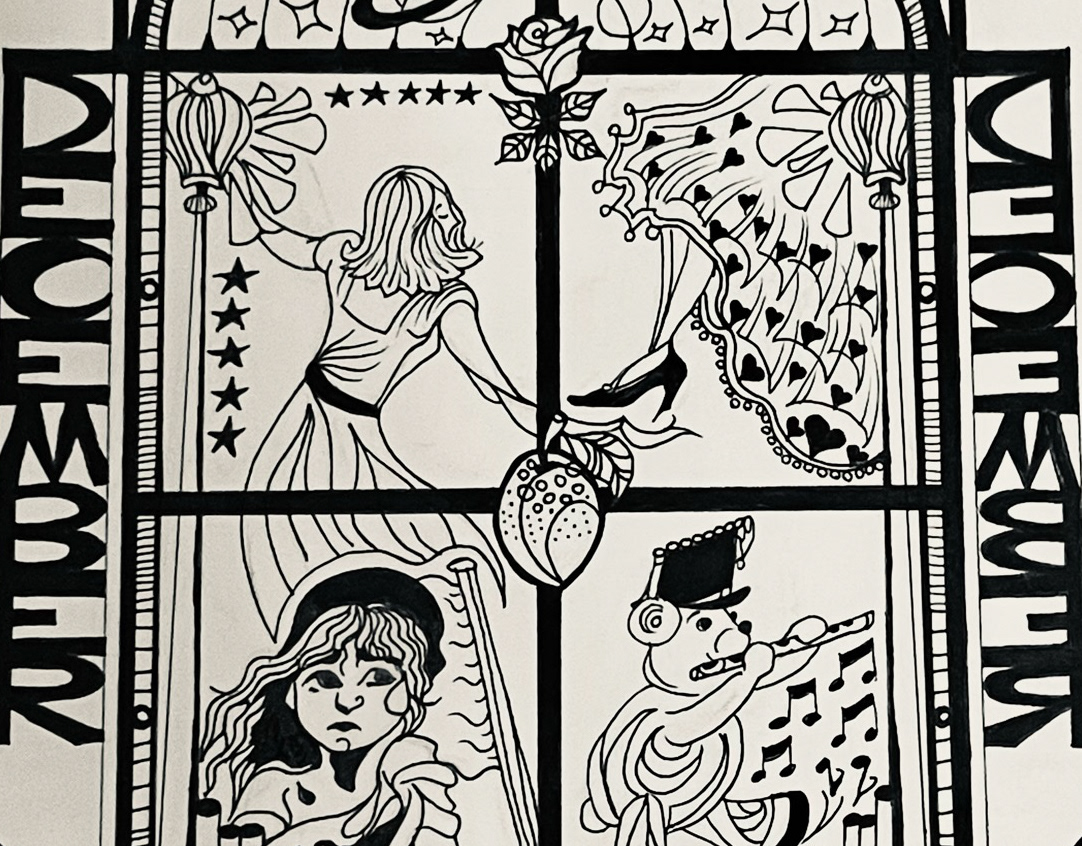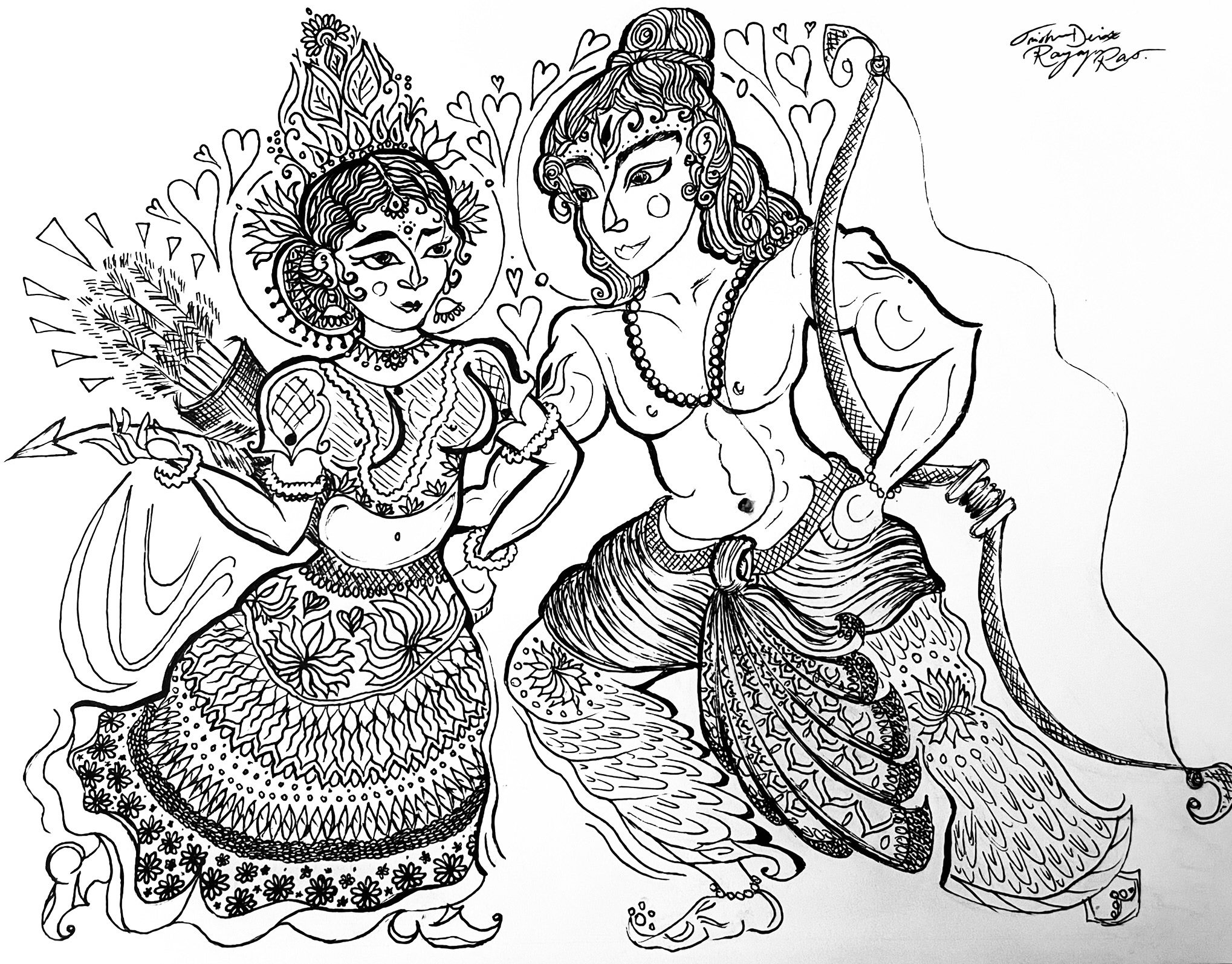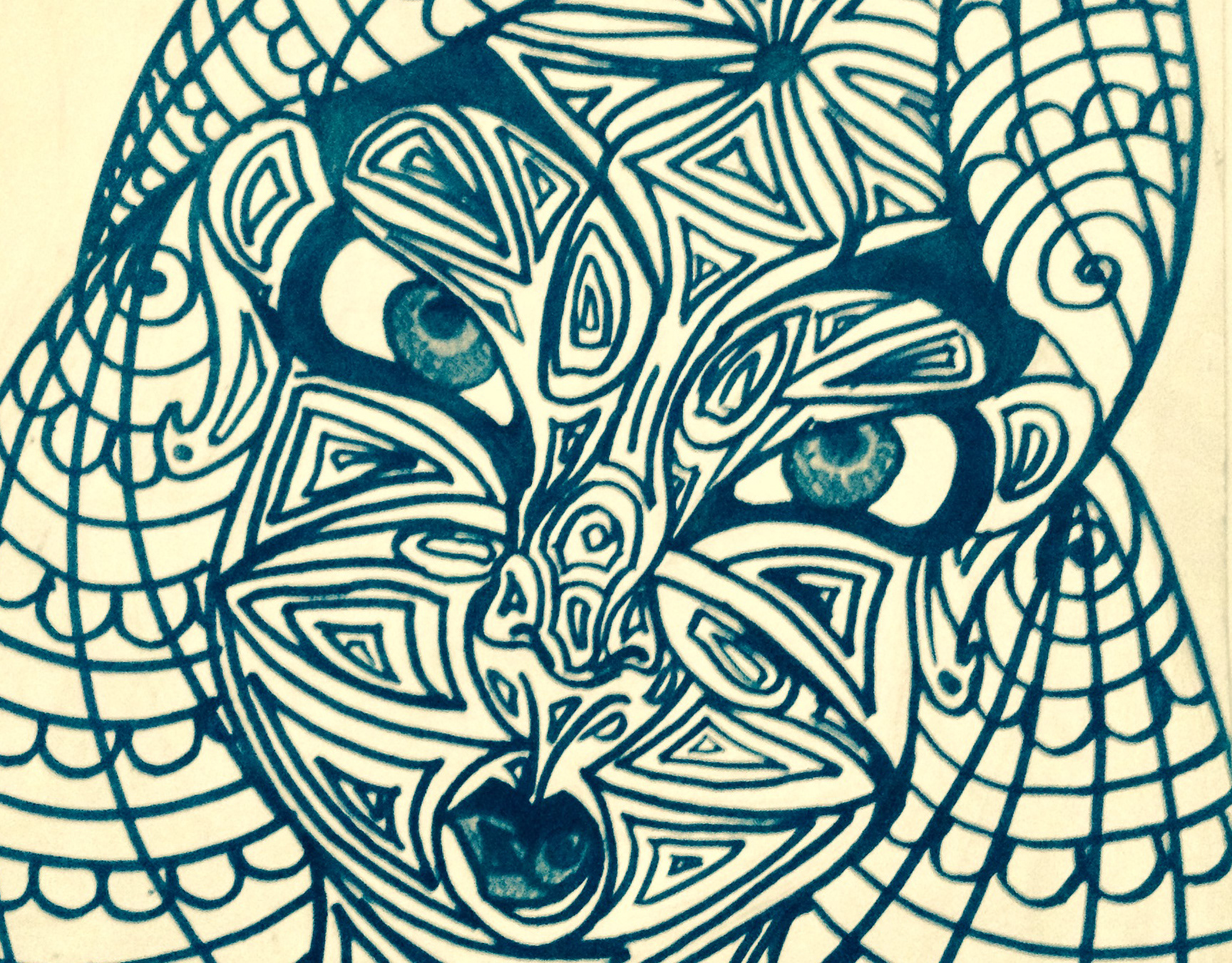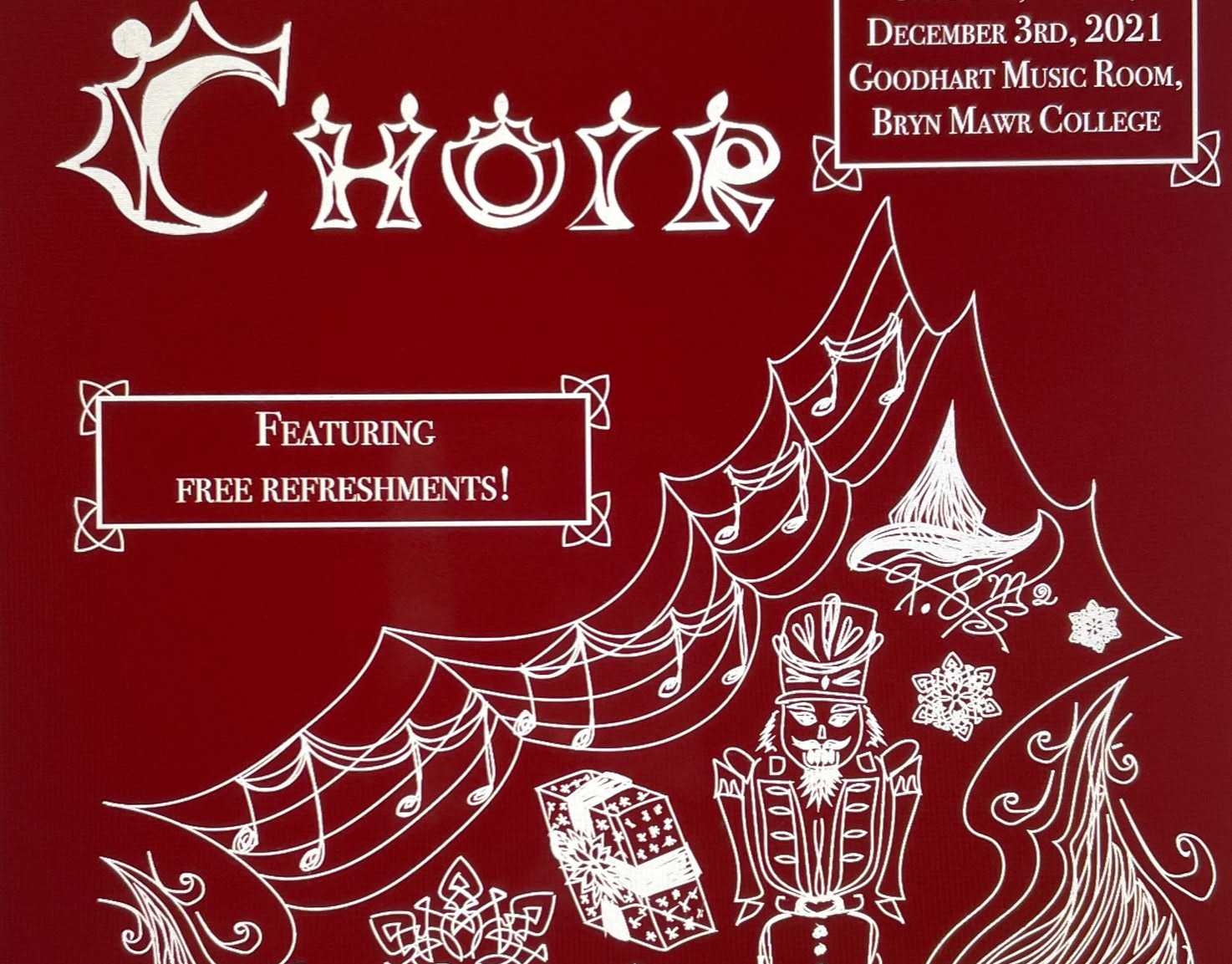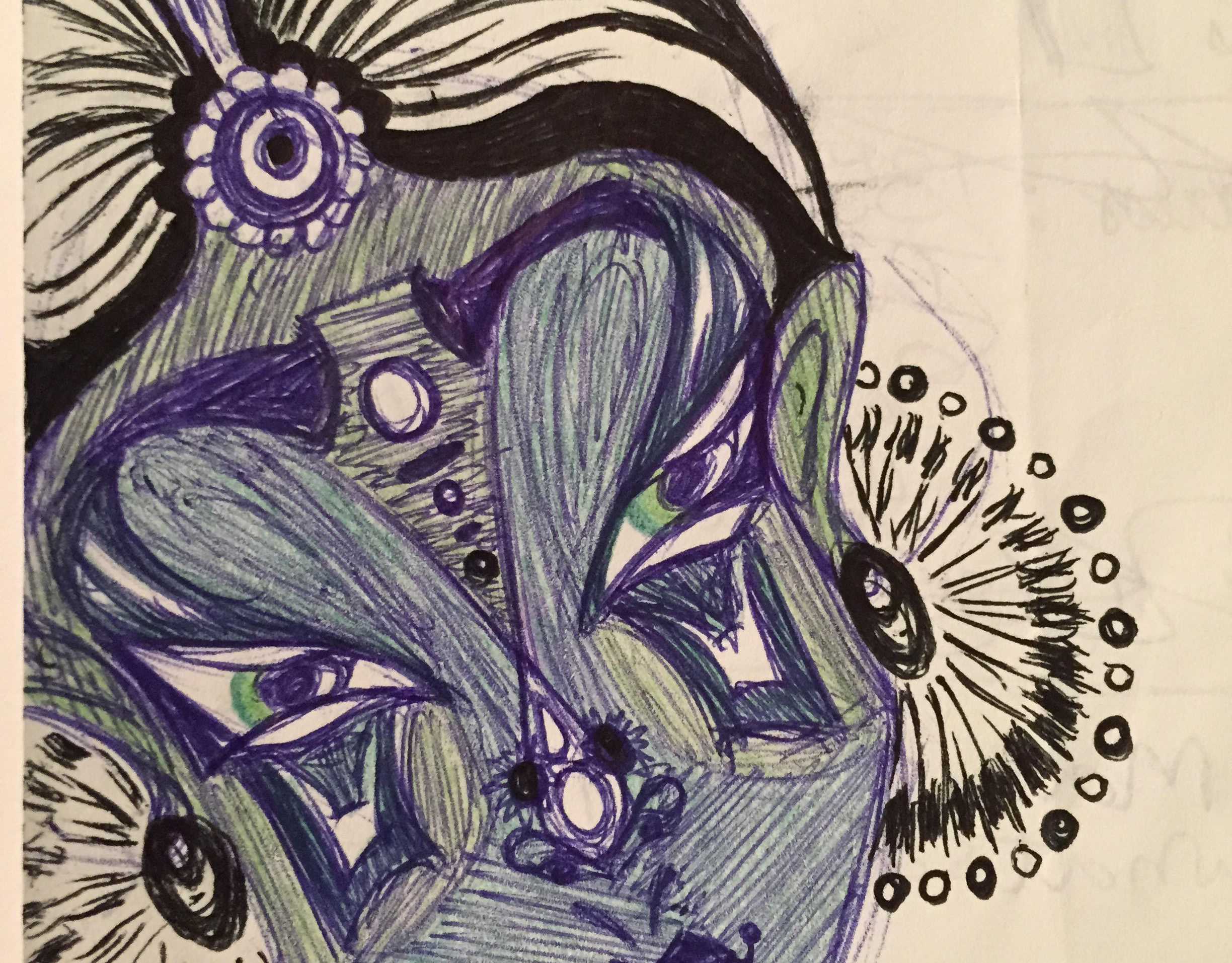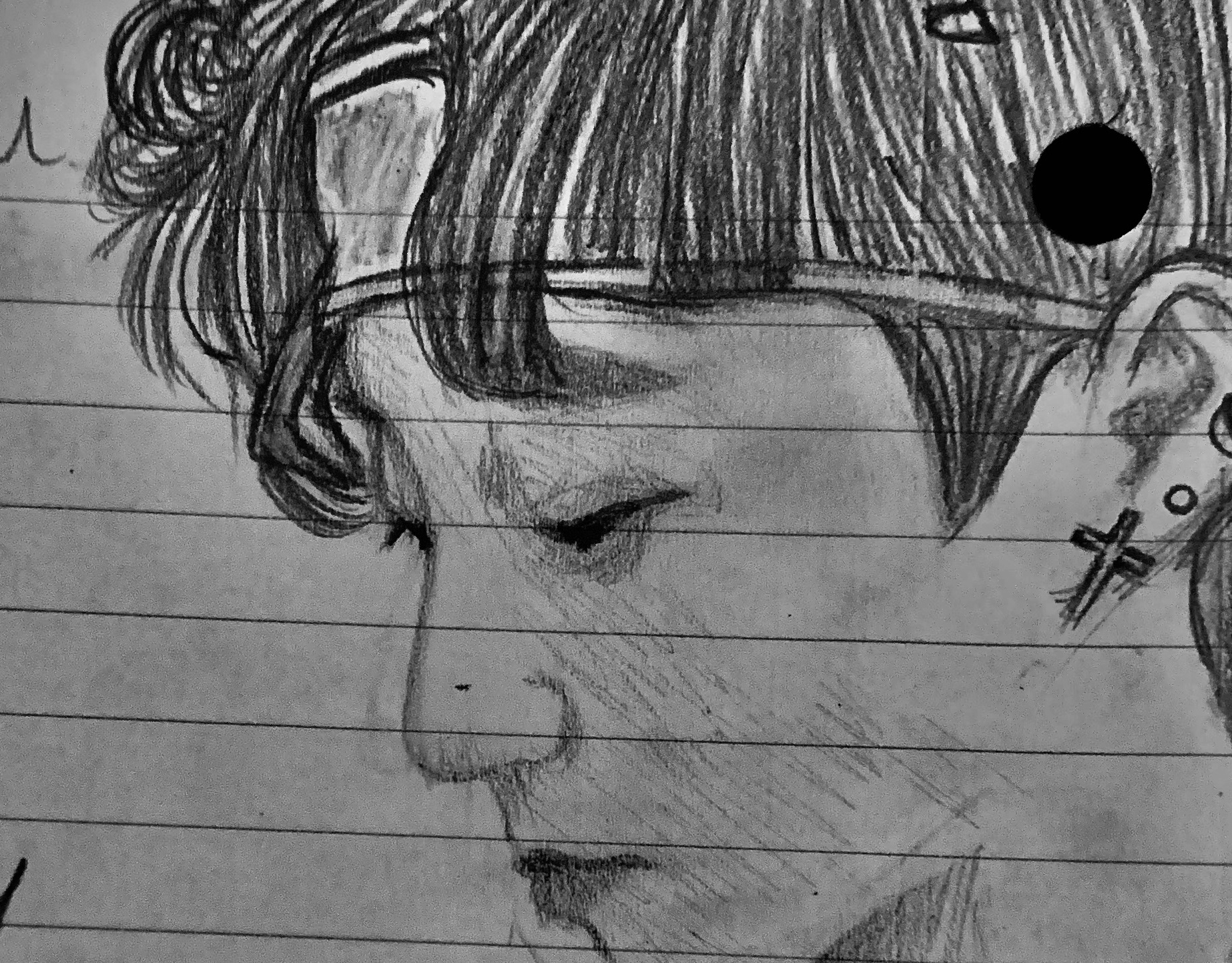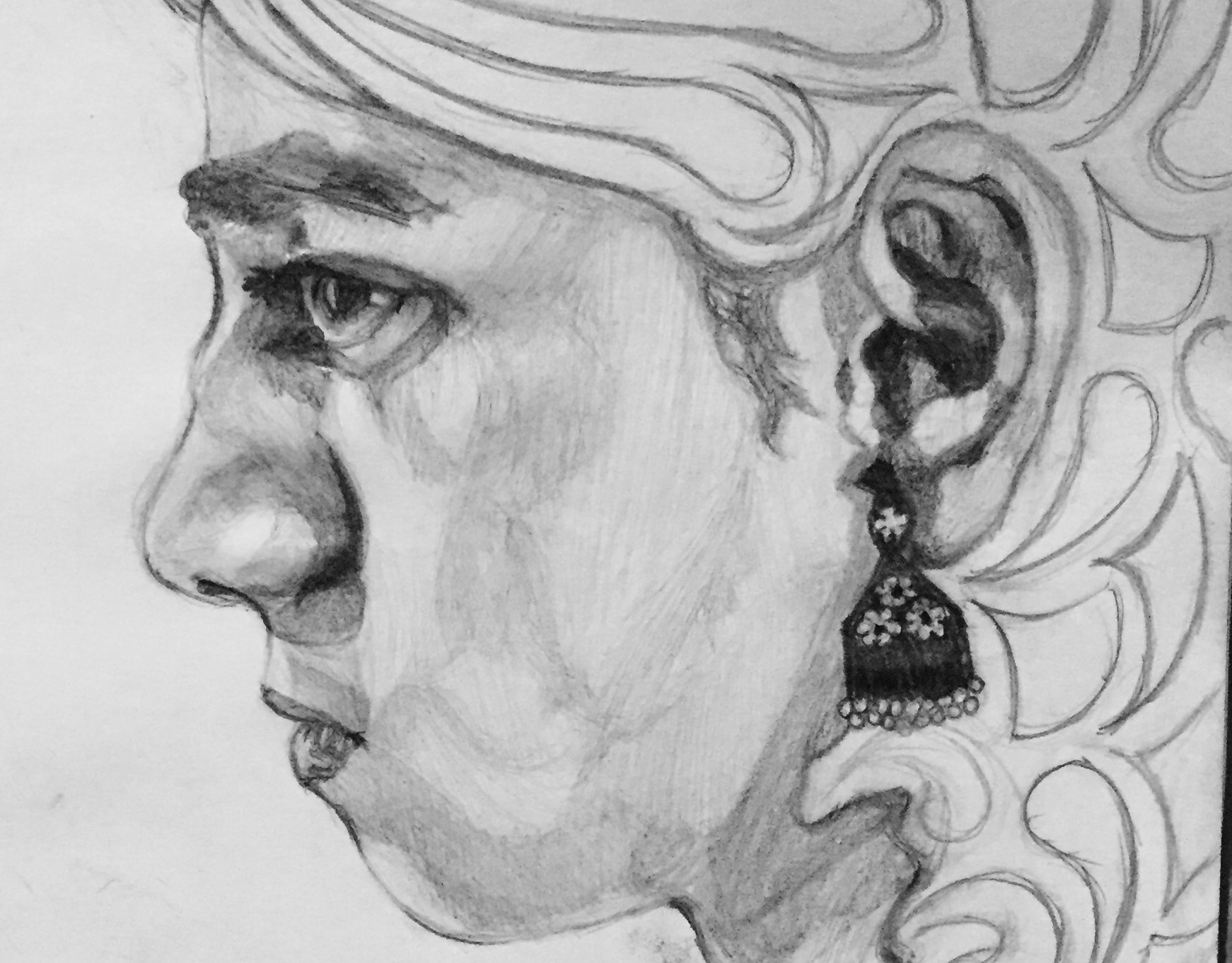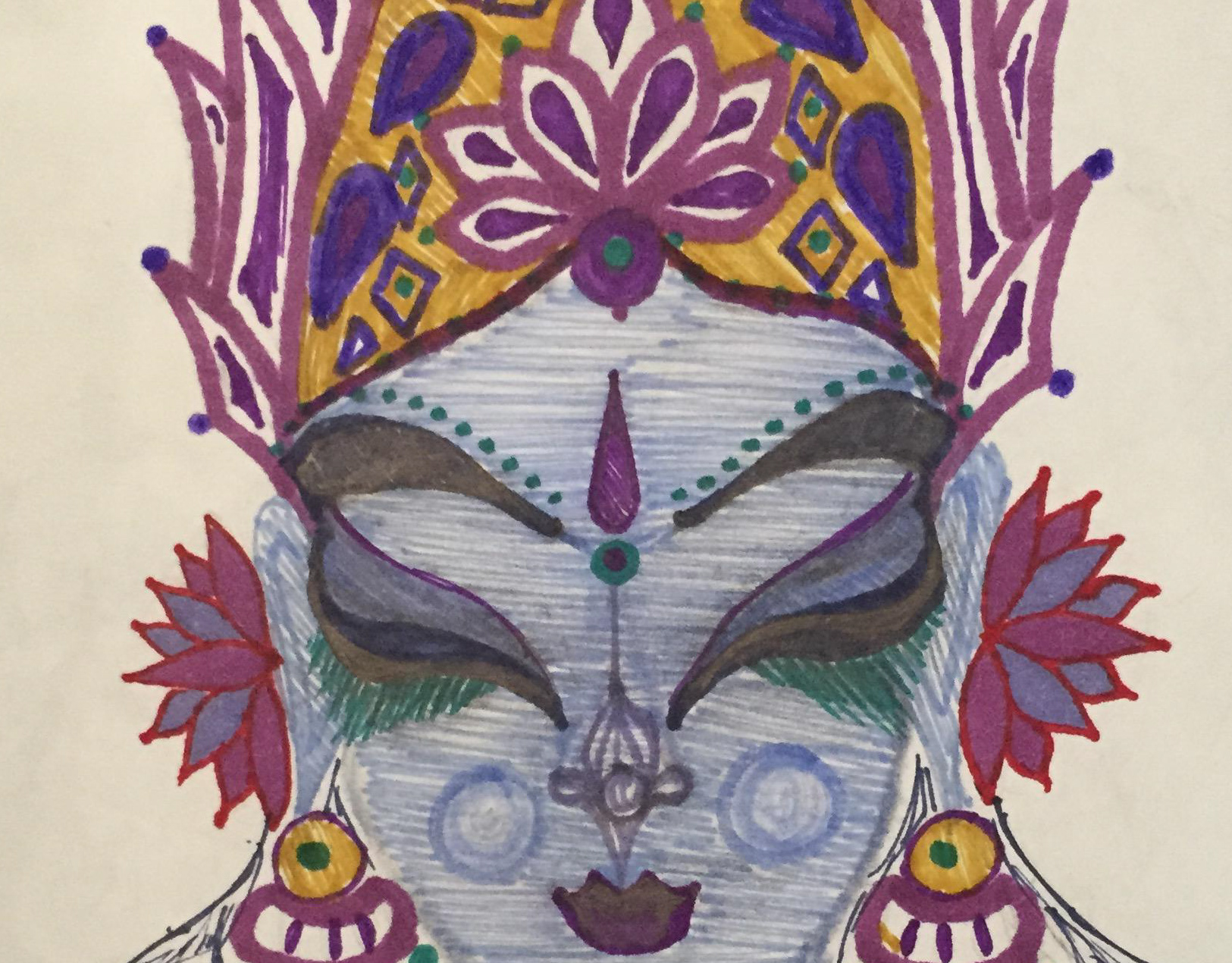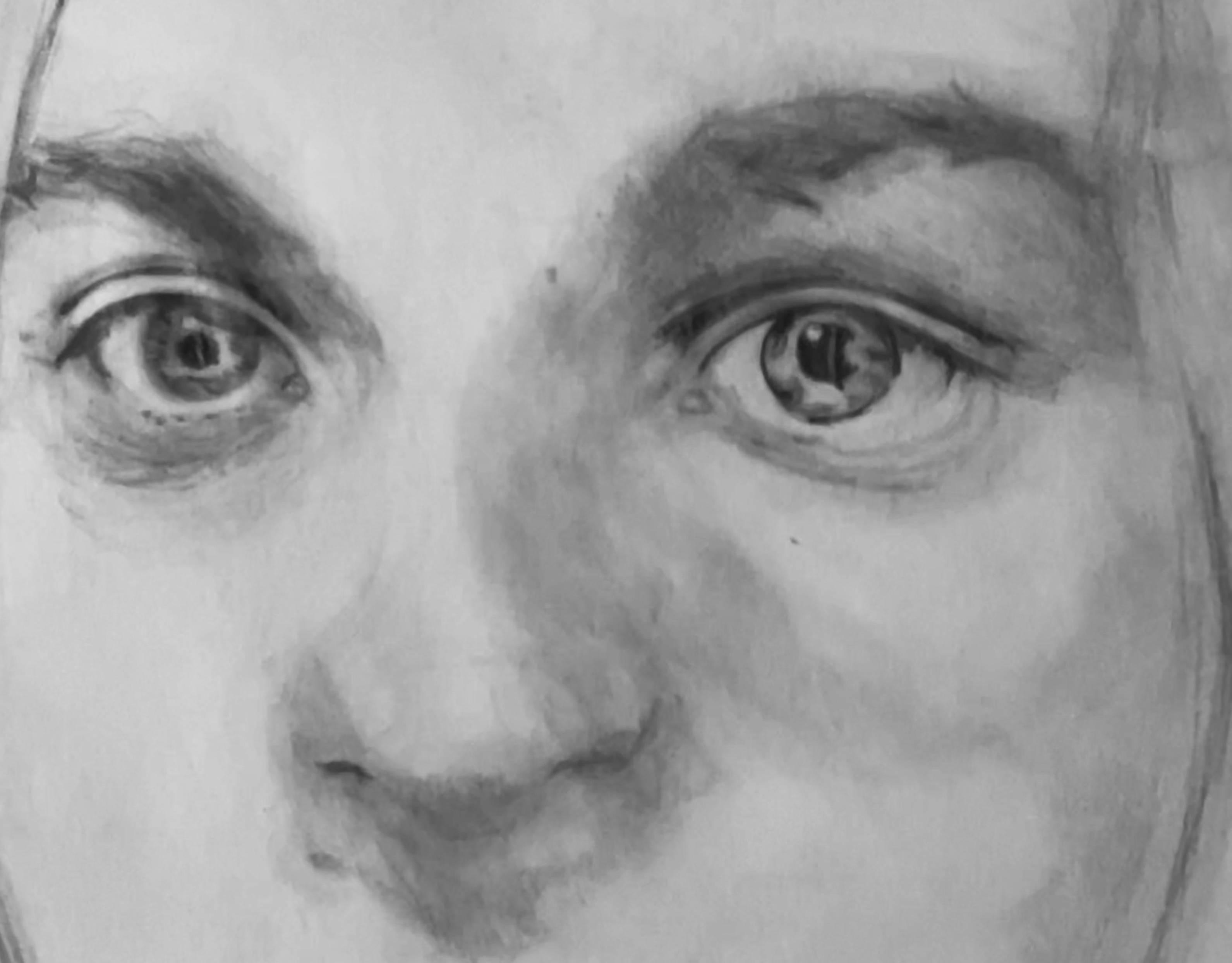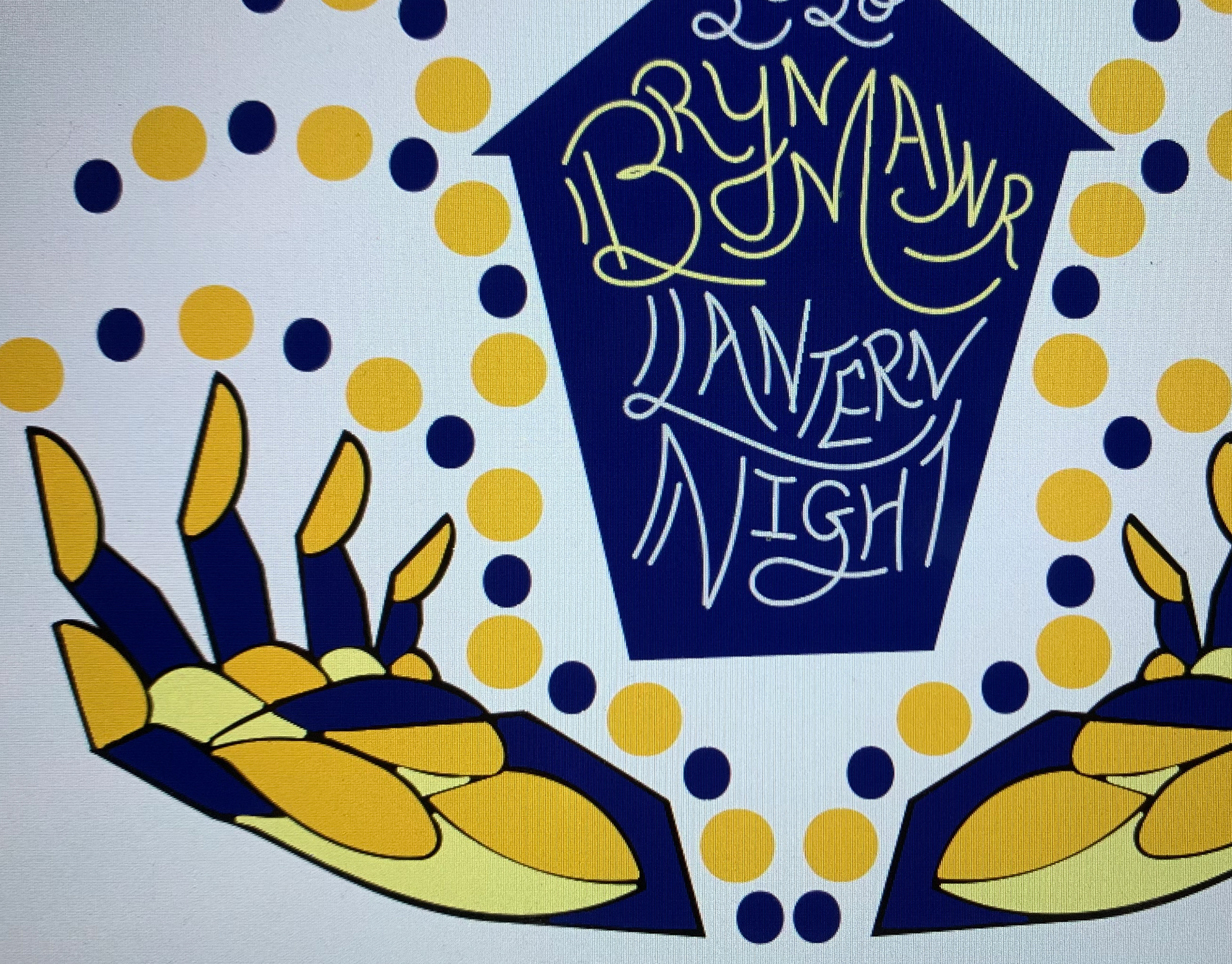"The Suicide Pact" by Dr. Advikolanu Muralidhar (2021)
Book cover and jacket designed using Adobe Illustrator for "The Suicide Pact," an English play by Dr. Advikolanu Muralidhar, a South Indian Telugu poet and writer. The central lesson is highlighted on the back cover. Each element from the set design and the themes/events themselves are illustrated. The play centers on a professor and his artistic wife, Lalitha, who despise one another, themselves, and their lives. One night, they draft a suicide pact. Since the play occurs over one night, the book spine, and the book cover's ceiling fan contains a single moon. The ceiling fan, with a sari and tie hanging from it, implies potential death looming over the characters' heads. The eye in the fan represents the audience bearing witness, who ultimately decide the story's conclusion. One line from the fan spirals into two, connecting to "U" and "I" to symbolize individuals, once united in love, now estranged. The wall has several symbols: There are two portraits of a hanging, one with and one without the head attached, to show both potential conclusions to the story. There is Lalitha's scribble next to the hangings, as she laments the meaninglessness of art and art critique. A sketch of a mother and child is drawn by Lalitha yet slashed to show her lost dream of motherhood. A question mark and quotation marks show how the majority of the play is dialogue with existential questions. The quotation marks also hint at the professor's monologue about the pointlessness of speech. A cage from the set design provides a feeling of being trapped in marriage/life. Cigarettes, a watch, a fountain pen, bangles, an ashtray and the suicide pact itself, are laid out on a table. The mangalsutra (wedding necklace) lies discarded, to show the dissolvement of marital bonds. The professor's glasses are cracked, to show distorted perspectives. The table doubles as the Bombay apartment where the characters reside, with shattered windows on one side and windows with the words "You, Me" scribbled on in Telugu. "You, me" is a phrase repeated when the characters are in love, yet those words change their meaning that night. The last letter of "Me" and the first letter of "You" are the same in Telugu, hence they merge initially (to symbolize unity in love) and gradually separate and reflect (to symbolize distortion of the self and separation in marriage) on the apartment and on the back cover's lower border.
More from this Category:
